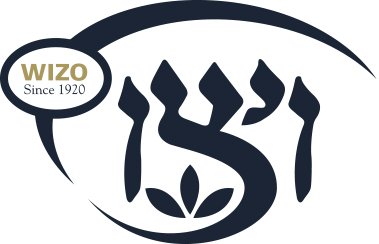Leah Frydenberg z'l
This is written by Harry Frydenberg, son of Leah Frydenberg (Surgel).
My mother arrived in Australia in 1937 as a 25 year old, following her elder brothers who had arrived in the mid 1920’s, and her sister who had arrived in 1935. Morrie Frydenberg, my father arrived shortly after, and they married in 1937, settling in North Carlton, which had a strong Jewish Community that subsequently became more so with the post war influx.
Leah was born in a one horse town (or street) called Zielen in Poland. Her father died when she was young, her brothers had emigrated to Australia, and she barely made a living embroidering articles at night and selling them on the train to Gdansk by day. Zielen is about 113km from Mlawa, the larger rural town halfway between Warsaw and Gdansk on the Baltic sea. This was where my father lived and where they had met. My father was off to Israel but had a close friend who needed to get out of Poland quickly, so he gave his Israeli Visa to him and subsequently followed my mother to Australia.
Jewish Communal Groups in Carlton covered a wide range of Religious, Political and Cultural Practices, with Bialik kindergarten, Peretz Yiddish school, Talmud Torah Hascolah and the Kadimah Cultural Centre, and the youth movements Habonim, Bnei Akiva, Betar and Skif.
In the midst of this thriving Jewish community WIZO established the Carlton Group which was known as WIZO KINNERET. This group may have started around the late 40's with Rachel Saks as President. My mother became involved at the outset and became President in approximately 1954. She stayed President until her passing in 1989.
The group was very active having a variety of fund raising activities, Card Parties, Dinner dances, Raffles, Pre wedding parties and the highlight of the year “The Queen Competition”
My mother successfully convinced both young and older women to be their candidate. Family and friends would raise money towards the children’s homes in Israel (which WIZO Australia was supporting). This would culminate in The Queen Competition Ball where all the WIZO Groups would read out the final amounts raised and the biggest money raiser was crowned as Queen (literally).
WIZO Kinneret never did win a Queen Competition but my mother and her committee, some of whom I recall such as Mrs Popov, Mrs Flamer, Mrs Widawksi and apologies to those whose names I do not recall. The ladies worked very hard collecting money for WIZO and on many occasions today I have women come up to me and remind me that my mother arranged their Pre-Wedding Party.
As my family grew and the ladies of WIZO got older, they would come to our home for card nights, arriving at 6.00pm with dinner and cards over by 8.00pm. On many occasions my mother would welcome and introduce Ann Zablud the President of WIZO Victoria – with a carefully scripted introduction. We used to muse how strange to be eating so early and finishing the evening in such speedy fashion, and now as we have entered our senior years we understand this a little better.
For over 35 years my mother Leah Frydenberg was immensely proud of her involvement in WIZO which gave her so much pleasure and satisfaction in helping the Children of Israel. She was subsequently honoured being made a Governor of “Ahuzat Yeladim” in Haifa. In 1962.
The community service continues in different ways. I am sure she would be proud of her family and heritage. Leah’s family have continued to thrive both in Australia and Israel. My sister Anne married Alec Braizblatt, who was a Leader of Habonim in Melbourne (and whose father Avraham was a famous Yiddish actor here), and went on Aliya to Israel in 1960 where she had three daughters and five grandchildren.
My wife Erica and I have two children and five grandchildren of whom we are very proud. Leah would enjoy the achievements of her grandchildren who are contributing to the community in both medicine and politics.
Editor's note: You might know one of her grandchildren, Josh Frydenberg the current Australian Treasurer.
I am very proud of her contribution to WIZO during its first hundred years.

